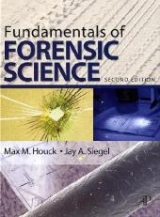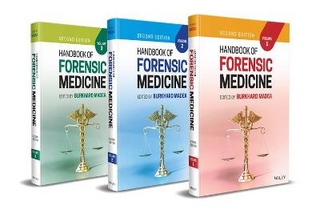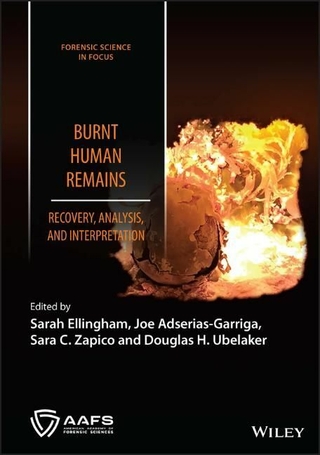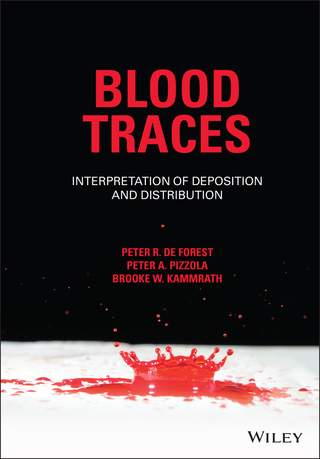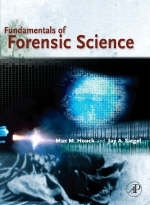
Fundamentals of Forensic Science
Academic Press Inc (Verlag)
978-0-12-356762-8 (ISBN)
- Titel erscheint in neuer Auflage
- Artikel merken
Fundamentals of Forensic Science offers a complete look at the core topics of forensic science.
It represents the most realistic view of the field by including areas that, while central to criminal investigation, fall outside the typical definition of criminalistics. These areas include pathology, entomology, anthropology, and other areas of scientific study unique to forensic textbooks.
Organized by the timeline of a real case, the text begins with an introduction and history of forensic science. It then covers the methods of analysis used in most forensic examinations, addressing the biological, chemical and physical elements relevant to the field, and concluding with an examination of how forensic science intersects with law. Feature boxes throughout the text contain online resource listings, historical events in forensic science, practical issues in laboratory analysis, and topics for further reading or interest.
This book is recommended for students in forensic science and professionals in the various forensic disciplines – fire, chemistry, crime scene, trace evidence, law enforcement personnel, lawyers, and defense attorneys.
Dr. Max M. Houck is an internationally-recognized forensic expert with research interests in forensic science, education, and the forensic enterprise and its industries. He has worked in all aspects of forensic science, including at the FBI Laboratory. Dr. Houck has published widely in books and peer-reviewed journals. His anthropology and trace evidence casework includes the Branch Davidian Investigation, the September 11 attacks on the Pentagon, the D.B. Cooper case, the US Embassy bombings in Africa, and the West Memphis Three case, among hundreds of others. He served for six years as the Chair of the Forensic Science Educational Program Accreditation Commission (FEPAC). Dr. Houck is a Fellow of the Royal Society of Chemistry and a founding Co-Editor of the journal Forensic Science Policy and Management. Jay Siegel, PhD is retired Director of the Forensic and Investigative Sciences Program and Chair of the Department of Chemistry and Chemical Biology at Indiana University Purdue University Indianapolis. He was Director of the Forensic Science Program at Michigan State University for 25 years from 1980-2004 until his retirement as Professor Emeritus. Dr. Siegel is a Distinguished Member of the American Academy of Forensic Sciences and was named as Distinguished Alumni Scholar by his alma mater, George Washington University in 2011. He is co-editor of Forensic Science Policy and Management: An International Journal. He was a member of the National Academy of Sciences Forensic Science Committee from 2006-09.
1. Introduction
2. Crime Scene Investigation
3. The Nature of Evidence
4. Microscopy
5. Spectroscopic Techniques
6. Separation Methods in Forensic Science
7. Pathology
8. Anthropology and Odontology
9. Entomology
10. Serology and Bloodstain Pattern Analysis
11. DNA Analysis
12. Forensic Hair Examinations
13. Illicit Drugs
14. Forensic Toxicology
15. Textile Fibers
16. Paint Analysis
17. Soil and Glass
18. Fires and Explosions
19. Friction Ridge Examination
20. Questioned Documents
21. Firearms and Tool marks
22. Impression Evidence
23. Legal Aspects of Forensic Science
| Erscheint lt. Verlag | 24.4.2006 |
|---|---|
| Verlagsort | San Diego |
| Sprache | englisch |
| Maße | 189 x 246 mm |
| Gewicht | 1910 g |
| Themenwelt | Medizin / Pharmazie ► Medizinische Fachgebiete ► Rechtsmedizin |
| Recht / Steuern ► Strafrecht ► Kriminologie | |
| ISBN-10 | 0-12-356762-9 / 0123567629 |
| ISBN-13 | 978-0-12-356762-8 / 9780123567628 |
| Zustand | Neuware |
| Haben Sie eine Frage zum Produkt? |
aus dem Bereich
